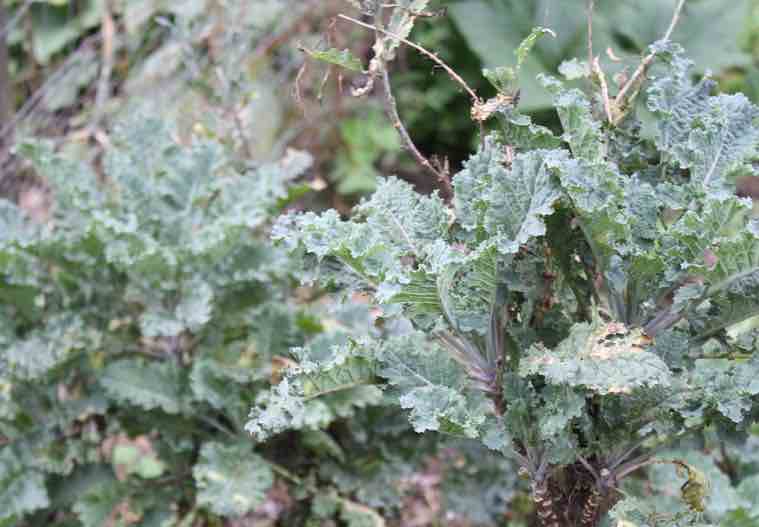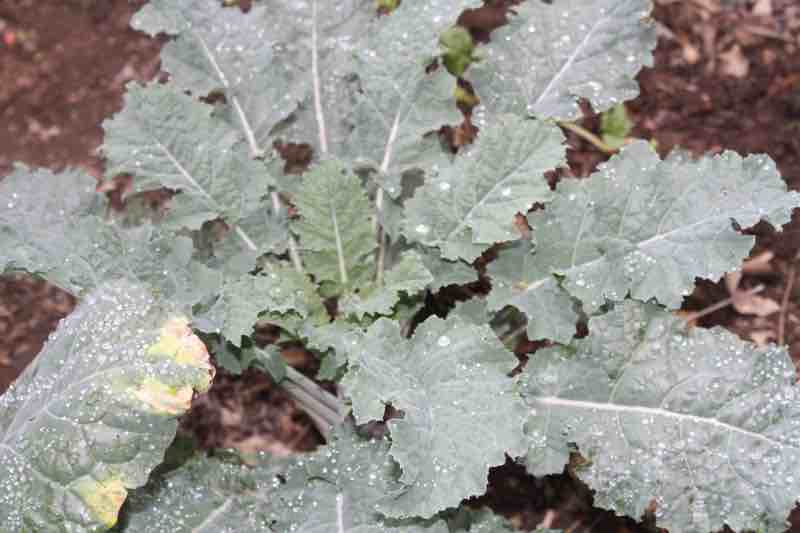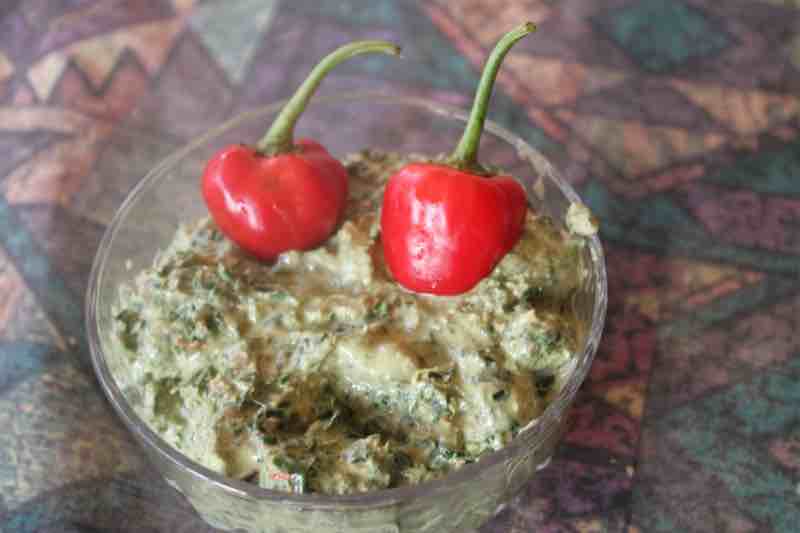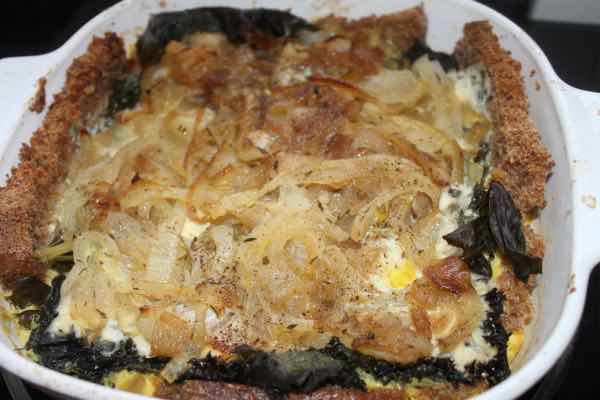- Homepage
- Our green garden
- Everlasting Kale
Everlasting kale
Everlasting kale should be grown by all gardeners, if only because it will help save our eyes from macular degeneration and cataracts; it's all about a phytochemical called lutein[1].
Many folk have a serious dislike for kale and it’s not entirely surprising; unless the leaves are young and freshly-picked, they are not very appetising. Nevertheless, for those who have an aversion to doctors poking sharp instruments into their eyes, it is the richest source of lutein; a phytochemical found exclusively in the macula. For that reason alone, we should eat it every single day.
"Super foods offer high levels of desirable compounds and are linked to the prevention of disease; or are believed to offer several simultaneous health benefits beyond their nutritional value.”
Kale provides many other benefits besides a high level of protection against age-onset blindness.

Summer perhaps surprisingly is a time when it is often more difficult
to grow fresh, wholesome organic-greens without biocides. The lettuce
is burnt by the hot sun and the spinach is covered with mould; but kale
soldiers on, giving us a daily supply as we pluck off the young shoots.
One can and perhaps should eat it both raw and cooked.
I love vegetables that go on bearing through the year. The kale
plant above is very old; every day it supplies
us with half a dozen fresh young leaves for Eggs Hilton. It's a breakfast that is so good that I cannot now go without it.
I am totally hooked for many reasons; not least it is the solution to my chronic, stubborn constipation. If I eat kale daily, toiletries become easy two-minute affairs; it's all about the fibre. Too much of a good thing and you may get diarrhoea.
It is our variation of the old Italian favourite, Eggs Florentine; more usually poached on a bed of spinach. With added onion, garlic and peppadews it is the guarantee there will be no hunger pangs at 11 o’clock. So there will be no temptation to reach for some corona-food; a cola and a cookie. Refined carbs are the great enemy.
A healthy diet for prediabetes means strictly limiting refined carbs and exercising daily; and plenty of fibre.
It's no exaggeration to state that this one plant has provided us with at least five-hundred rand per year of food, at current supermarket prices.
There are many varieties of kale; we have at least five growing, carefully fenced off from the hens. They know good-food when they see it and will demolish your crop given half a chance. Even more than us they are utterly dependent on their eyesight for survival.
Each variety has its benefits with greater or lesser amounts of folic acid and many minerals; but all are by far the richest source of lutein.
Those who indulge daily in this "super food" can reasonably expect to escape cataracts and macular degeneration. Another phytochemical, zeaxanthin is also needed for that assurance; more about it later. Meantime the green mealie is a great source[2].
This is a much younger example of kale; it seeded itself under the mother-plant.

One of the bioactive compounds found in kale is a flavonoid called kaempferol[3]; there are many studies showing that those who consume it regularly have a far lower risk of cardiovascular-disease and malignant tumours[2]. We look upon our everlasting kale plant as medicine; whether it tastes good or not is irrelevant. From the grocery store I'm afraid it may be awful.
Let your food be your medicine, said Hippocrates, the father of modern doctors. How right he was; we don't look to get these important compounds from supplements. Many of them are to be found in your own green garden. Just enjoy a wide variety of coloured-vegetables and fruit.
The material expressed on this page is gleaned from the nutritional and environmental literature; it is clearly referenced. A plain distinction is made between the author's opinion and that which is scientifically proven. When in doubt consult your health professional.
To suggest a correction or clarification, write to Dr Bernard Preston here. Contact.
Kale is also a great source of fibre that will keep you regular and feed that mass of important, friendly bugs that inhabit your intestine known as the microbiome. A huge amount of research on these bacteria and yeasts has led to them being called the "second-brain." They supply the body with important neurotransmitters like dopamine and energy for the lining of the cells of the colon.
They have to be fed with pre-biotics; the indigestible fibre in your fruit, veggies and unrefined starches.
We try to grow a new vegetable or fruit every year instead of buying it from the greengrocer; half a dozen kale-seedlings planted right now would do your family a power of good.
And this kale pesto will brighten up any dull green salad; it has pecan-nuts, feta and brightly coloured peppadews to give it a bit of oomph.

Parkinson's Disease
Parkinson's Disease is fastest growing neurodegenerative condition in the world; interesting research shows that what we eat is profoundly important both whether we will suffer from the illness and how fast it progresses.
French onion and blue cheese wholegrain quiche
This French onion and blue cheese wholegrain quiche unlike most tarts has leaves of kale added, making it easier to achieve the mandatory seven coloured foods we all should enjoy daily; it's very easy to put together and needs only 15 minutes in the oven.

Everlasting kale
Everlasting kale is for those who do not relish the thought of doctors poking sharp-instruments into their eyes; and for protection against Parkinson's Disease.
Folklore places great store in prevention being better than a cure; but when were you last encouraged to make sure that you regularly have dark-green leafy vegetables like kale, broccoli and spinach on the table?
When browsing use right click and "Open Link in New Tab" or you may get a bad gateway signal.
From the horse's mouth
Newsletter
Our newsletter is entitled "create a cyan zone" at your home, preserving both yourself and Mother Earth for future generations; and the family too, of course. We promise not to spam you with daily emails promoting various products. You may get an occasional nudge to buy one of my books.
Here are the back issues.
- Lifestyle and ideal body weight
- What are ultra-processed foods?
- Investing in long-term health
- Diseases from plastic exposure
- Intensive lifestyle management for obesity has limited value
- A world largely devoid of Parkinson's Disease
- The impact of friendly bacteria in the tum on the prevention of cancer
- There's a hole in the bucket
- Everyone is talking about weight loss drugs
- Pull the sweet tooth
- If you suffer from heartburn plant a susu
- Refined maize meal and stunting
- Should agriculture and industry get priority for water and electricity?
- Nature is calling
- Mill your own flour
- Bake your own sourdough bread
- Microplastics from our water
- Alternative types of water storage
- Wear your clothes out
- Comfort foods
- Create a bee-friendly environment
- Go to bed slightly hungry
- Keep bees
- Blue zone folk are religious
- Reduce plastic waste
- Family is important
- What can go in compost?
- Grow broad beans for longevity
- Harvest and store sunshine
- Blue zone exercise
- Harvest and store your rainwater
- Create a cyan zone at your home
Did you find this page interesting? How about forwarding it to a friendly book or food junkie? Better still, a social media tick would help.
- Homepage
- Our green garden
- Everlasting Kale
Address:
56 Groenekloof Rd,
Hilton, KZN
South Africa
Website:
https://www.bernard-preston.com